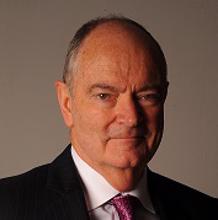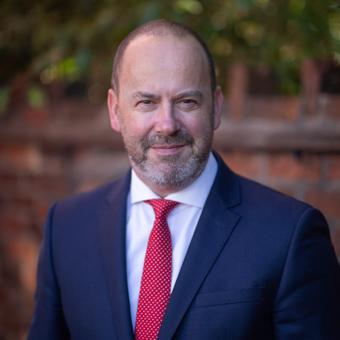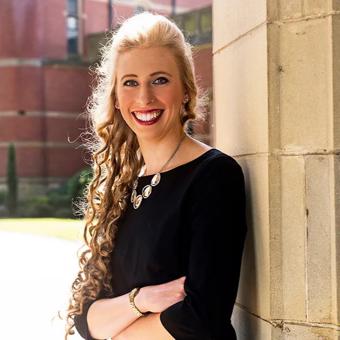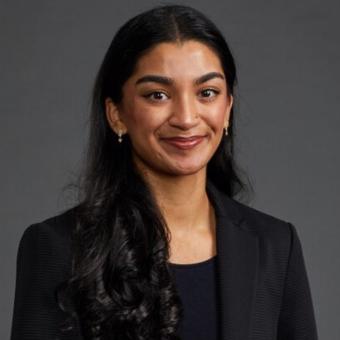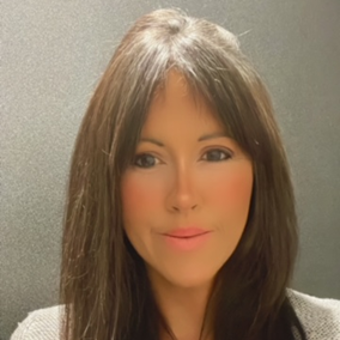Gerald Cooke one of the UK’s leading lawyers shares his insights.
Gerald, why did you choose a career in law?
I had no particular desire to become a lawyer when I completed my first degree in South Africa but rather thought that journalism would be an attractive career. Unfortunately positions for cub reporters were few and far between after graduating and I had to work in the management of one of the newspapers whilst writing freelance articles for the Sunday edition of that paper. I realised reasonably quickly that journalism may not be all that it was cracked up to be and, after parental pressure, elected to study law. I did so and qualified in Johannesburg where I completed my law degree whilst undertaking what were then known as Articles of Clerkship.
I do not suppose that I really became wedded to the notion of practising as a solicitor until I found myself in England where I was faced with the need to serve a further period under Articles of Clerkship with an English firm and had to rewrite a set of examinations. That was in 1976 when South Africa was the subject of sanctions and the concessions given to South African qualified persons, allowing early requalification were withdrawn. Having to undergo all of this again meant a considerable commitment not to mention a financial burden that needed to be repaid promptly after requalification.
My decision has been vindicated because my career has not only been reasonably rewarded but it has also been fascinating.
Why did you decide to set up on your own?
My first employer in England was fully engaged in maritime law. Shortly after requalification with that firm, I found myself being offered a significant promotion with a partnership shortly thereafter.
In 1984, however, I and a group of other maritime and trade law specialists became involved in discussions to set up our own firm. Unfortunately, the formation of that firm did not come to pass even though I had resigned from the partnership in which I was then engaged. I joined Baker & McKenzie (“B&M”) in 1984 with a view to starting that firm’s maritime practice. For various reasons, not the least being the reluctance on the part of my new firm to countenance the much lower charge-out rates being applied in the maritime law world, I slowly withdrew from the practise of shipping law and focused more on the areas of practice within B&M that did not bring me into conflict with my partners.
I spent 20 very good years with B&M but always harboured a desire to “run my own show”. Accordingly, when I reached the age of 57, it occurred to me that as I was then obliged to retire at 62 (as a consequence of an agreement reached with all the partners in London), it would make sense for me to retire sooner than that age and to set up a firm of my own. I felt that my “street credibility” would take a sharp downward turn on reaching 60 and so a move before that age would make sense. Accordingly, in 2004, at the age of 58, I retired and set out on my own.
What has been the timeline for the firm since you left Baker &McKenzie in 2004?
If by “time line” you mean a “chronology of notable events”, the position was as follows.
The firm started by me in early July 2004 was known as Masseys (Massey being my middle name). It occupied space in Berkeley Square in Mayfair.
In August 2004, I was joined by Sean Upson, one of my former colleagues at B&M, and, later in October we were joined by another former colleague of mine being Jane Colston.
In November 2004 we moved into the City of London. Marc Keidan joined in October 2006 from Addleshaw Goddard. We were joined there by Philip Young (also from B&M) in 2007. By the end of 2008 that firm had five partners and around five other fee earners.
In 2008, Philip Young, Marc Keidan and I decided to set up our own firm and left Masseys at the end of 2008 to form Cooke Young & Keidan (“CYK”).
CYK started with the three founding partners in 2009. We were joined by two associates by the middle of that year. Since then, our numbers have grown steadily but slowly. This is because of a reluctance to expand to any significant degree (that reluctance is now much less pronounced and expansion may speed up to cater for demand).
Our first new partner was Sinead O’Callaghan who came to us from Mayer Brown in January 2010. She became a partner at the beginning of 2011.
Our next partner was Philip Rubens who joined us from Finers (as was) in September 2012. He retired from CYK in the latter part of last year.
Stephen Elam was made up to partner on 1st September this year.
Did you always have a vision for the type of firm you wanted to run?
When I formed Masseys in 2004 I had anticipated managing my own clients and, possibly, moving into the world of international commodity trading once again having largely abandoned it for the reasons outlined above. This vision, as was to be expected, was not fulfilled for a number of reasons but, principally, because I was inundated with work within days of opening my new firm.
It had also become obvious fairly early on that although many commodity trading houses operated from Mayfair, lawyers who practise in Mayfair were considered to be in the property game and, therefore, the traders who had disputes, sought advice only from the established City firms. I decided very rapidly to move back into the City for that reason.
The move itself brought about an instant increase in work – probably around a third more within a matter of months. We were, by then, also holding ourselves out as undertaking City-type commercial disputes work. It was about that time that we began to hold the firm out (i.e. Masseys) as a boutique disputes firm. I believe that Masseys was one of the earliest disputes boutique firms in the City of London. However we were perceived by the “Market”, our workload and, hence, profits expanded significantly. To improve our attractiveness, we resolved to maintain a very low cost base with relatively modest charge-out rates.
In 2008, the type of work that we were seeing began to change slightly in that Philip Young, assisted by Marc Keidan, had started actively seeking work from entities in the finance world and, in particular, hedge funds. The financial collapse brought about a significant increase in the flow of financial disputes work, particularly towards the back end of the year. Accordingly, when we left Masseys at the end of 2008, CYK was already well-set with existing work on day one.
The rush of financial litigation caused by the 2008 meltdown has continued largely unabated. Since then, albeit we do anticipate that before too long, there will be a “tailing off” of such claims. Our “vision”, by then, to a great extent, was being dictated by the events around us as we were finding that our model enabled us to be taking on some of the most high profile and cutting edge disputes being litigated in London.
With the anticipation of a gradual diminution in the new “starts” of financial claims, particularly against the banks, we resolved to expand our market appeal. Even now, around 45 to 50% of our workload is finance disputes-related. We have, however, progressively moved into ancillary areas of work, particularly the regulatory arena and have also marketed our traditional work-base, namely areas such as significant City-type commercial disputes, corporate/partnership disputes, civil fraud and arbitration. Our efforts to diversify have in the past year or so borne fruit.
In our recent strategy deliberations, we have contemplated the perceived potential threats to firms like ours (and, indeed, to law firms generally). We have concluded that a drive to excellence is what will, ultimately, determine our future success. We have focused on increasing our attention to training, the uplifting even further of standards of our work etc., so that with a potentially diminishing number of disputes coming before the Commercial and Chancery Divisions of the High Court, we will become a stand-out firm. We are also pushing ahead with a plan to combine our now significant financial know-how with our existing arbitration experience in the direction of the treaty-based finance arbitrations.
What areas are you seeing/expecting growth in?
Whilst I am not sure I am personally convinced, my partners are optimistic that Brexit will have either a neutral effect or a mildly positive effect on our practice. There is debate across City litigators as to whether London’s place as a major hub for international disputes will be impacted adversely. We expect both the amount of arbitration work around, and the amount that the firm is doing, to experience some increase.
I personally have a concern that London’s attraction as a place in which to resolve disputes may become lessened. The application of English Law to contracts may continue unabated but the jurisdictions in which the disputes will be arbitrated or litigated may well move to the East (for example Dubai, Singapore or Hong Kong). A number of other jurisdictions, including Germany, are now flirting with ways of attracting international commercial disputes.
How did the events of 2008 affect the firm?
We benefited in a number of particular ways. First, we gained a level of exposure that was unprecedented as far as I was concerned. The exposure highlighted our successes in acting against the banks particularly in high profile fraud claims – those banks had almost become the “public enemy number one”.
Secondly the success in various actions has raised our profile with the consequence that we have been receiving a good number of unsolicited applications for positions with us, principally from people in the large City firms.
Thirdly, it has enabled us to develop a high level of expertise in the financial markets and, in particular, on matters involving financial derivatives.
Our growth in financial expertise has allowed us to expand our know-how in regulatory matters and that, together with the raised awareness of what we are capable of doing has enabled us to market ourselves more generally as commercial disputes lawyers than we might otherwise have expected.
What’s your approach to growth & expansion?
We started the firm in 2009 and we formed the view that CYK would remain a “tight ship” with a very conservative approach towards expansion and growth. We believed then that the key to our success would rest with low costs to our clients: i.e. we would charge out our time at a level that was significantly lower than our opponents and would try to limit costs by keeping our administrative numbers down and by maintaining a strict discipline on the work that we would take on.
We thought that, in this way, we would be able to weather any significant downturns in the economy and would avoid having to make any of our staff redundant. We would avoid, absent an exceptional business case and personal direct knowledge of the partner in question, taking on lateral partners and any growth in our lawyer numbers would be determined by what we considered necessary to discharge that business that we wish to take on.
Our resolve on controlling incoming work was maintained only by increasing the threshold value of claims that we would be willing to look at but even so, we found ourselves having to work with contract lawyers and by using barrister teams as quasi-associates. The consequence of that was a heightened need by the partners to spend more time supervising the teams. As a result, we are now tending towards taking on more associates than we may strictly require in order to ensure both the discharge of current work and having a pool of talented and trusted lawyers at our disposal at all times. We expect to grow the partnership organically over time.
A factor in our growth determination is the amount of space that we currently hold and the space that we decide to take on during the next 15 months when our lease ends. The balance between exuberant optimism on growth, and the cost of providing for it, is something ever present for any business. It is very difficult to know how that will work itself out at today’s date. I presently estimate that our overall numbers may rise by somewhere in the region of 20 to 30% during the next three years.
What are your biggest challenges?
Our first challenge will be to maintain the integrity of our team and to ensure that any persons who join us buy into our culture and our ambition to be among the very best. As to our culture, we have a well-developed transparency right through the firm on almost every aspect of the development of our firms’ business; a fact that is well-appreciated by our associates who both are, and feel that they are, a part of the process of growth and development.
The second challenge is to ensure that our drive towards excellence continues apace and the third is to ensure that our people continue to enjoy working at CYK.
In relation to the last-mentioned item, it was a founding principle of the firm that we would try to avoid the working practices prevalent at the firms from which we had all come: namely the 24/7 late night working that blights a good number of the young lawyers at virtually all the big firms. We have made a point of trying to wean those of our lawyers who came from the Magic and Silver Circle firms off the idea that if they were not working the sort of very substantial hours prevalent at those places, there was something wrong.
A fourth challenge arises from the proliferation of City boutique firms, a good number of them being spawned by structural or personality-driven difficulties within the big firms. Some of those challenger firms were formed where some partners in the large firms felt obliged to leave. Others were formed as a consequence of the successes enjoyed by the pathfinder boutiques including ours. Those firms which occupy the “disputes space” are chasing the same sorts of work that we also are pursuing. Nevertheless, the profile of the boutique firms is now such that they are are being seen as a credible alternative to the large firms by a wider range of clients and for a wider range of disputes. In that sense, although it is true that the pie is being sliced up, it is now, for the boutiques, perhaps a bigger pie than it was previously.
Thus far, we have not encountered any downturn in the work such that we are concerned about the other City (and, in some cases, West End) firms. Part of the reason for this is the perceived client flight from the mid-size firms where some of those clients will have avoided the very big firms for costs reasons. By and large, the disputes boutiques have been successful in combining quality with a more moderate cost. Of course, there has been an upturn in court cases since 2008. Moreover, the willingness of third party funders to take on funding high value disputes has meant that the aversion to paying massive legal fees has, to some extent, been alleviated by their interventions. This is likely to continue. I expect that we (and other boutique firms), in the future, will be taking on more and more damages-based agreements and group actions.
A further serious challenge is the trend to move disputes to the Far East. We learn that Indian companies, for example, are now readily writing in provisions for dispute resolution before arbitral tribunals in Singapore. The very high level of cost in English proceedings has been a major contributor to this trend of course.
Where do you want the business to be in five years’ time?
There is no current intention on our part to change from our focus on disputes work and, of course, what the Americans might call general counsel advice work. I would expect the business to be a larger version of what we are today: excellent disputes lawyers.
What are your thoughts/ predictions for 2017?
I anticipate more of the same, but in a slightly expanded firm. We will be looking for future office space that will conform with our ideal: relatively inexpensive, unfussy but smart surroundings. We do not want our clients to feel that they are bankrolling five-star surroundings in which they meet us.
